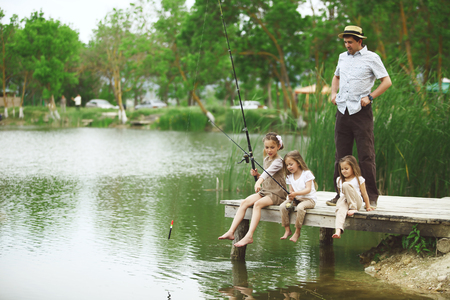A Brief Stroll Through British Angling Heritage
When we talk about angling in the UK, were not just chatting about rods and reels—its a true slice of British culture with roots that stretch back centuries. Picture this: misty mornings by the winding banks of the River Test or tales swapped in a cosy riverside pub, where legendary catches grow a little larger with every telling. British angling heritage is woven from these classic stories and traditions, shaping not only our weekends but also our national identity. Over the years, weve seen tackle transform from hand-whittled floats and split-cane rods to high-tech carbon wonders, while techniques have evolved as much from necessity as from curiosity. From the old-school art of float fishing for roach to the refined methods favoured by today’s match anglers, each generation leaves its own mark on the water. It’s a heritage built on patience, camaraderie, and that ever-present hope of landing a “proper” fish—a pastime that continues to cast its spell across the UK, inspiring both seasoned veterans and eager young anglers alike.
2. Quintessential British Fishing Venues
When it comes to angling, the UK boasts a tapestry of legendary venues that have shaped not just the local fishing scene, but also the very fabric of British outdoor heritage. From tranquil village ponds to sprawling lakes and meandering rivers, these waters are more than just fishing spots—they’re cherished community landmarks where generations of anglers have cast their lines, swapped tales, and forged friendships.
The Iconic Waters That Shaped Our Angling Culture
Some of Britain’s most iconic fisheries—such as the River Trent, Chew Valley Lake, and Grafham Water—are steeped in history and brimming with character. These venues aren’t just about landing a monster carp or chasing silvery shoals of roach; they’re about soaking up the atmosphere, sharing a brew on the bank, and feeling part of something quintessentially British.
Key British Fishing Venues and Their Unique Charms
| Venue | Location | Main Species | Notable for |
|---|---|---|---|
| River Trent | Midlands | Barbel, Chub, Roach | Historic match angling and vibrant club scenes |
| Chew Valley Lake | Somerset | Pike, Trout, Perch | Spectacular predator fishing and stunning rural views |
| Grafham Water | Cambridgeshire | Zander, Trout, Pike | Trophy-sized specimens and friendly competitions |
| Lakedistrict Tarns & Lakes | Cumbria | Bream, Carp, Tench | Picturesque settings and family-friendly facilities |
| River Wye | Wales/Herefordshire border | Salmon, Barbel, Chub | Breathtaking scenery and traditional salmon runs |
The Role of Local Communities in Angling Heritage
The enduring appeal of these venues lies not only in their natural beauty but also in the tight-knit angling communities they nurture. Local clubs organise junior matches and social events that help young anglers learn classic British tactics—think float fishing for tench at dawn or feeder sessions on the Trent. These shared experiences foster a sense of belonging and pride in keeping traditions alive while inspiring the next generation to appreciate both the sport and its rich heritage.

3. Community Spirit: Clubs, Societies, and Local Traditions
If you’ve ever spent a crisp Saturday morning at the banks of a British river or canal, you’ll know the heart and soul of angling lies in its clubs and societies. These local hubs aren’t just about wetting a line; they’re about forging friendships, learning from seasoned anglers, and keeping tradition alive. All over the UK, angling clubs—from sleepy village societies to bustling city collectives—have been the backbone of the sport for generations. They organise everything from laid-back evening matches to fiercely contested weekend competitions, creating a regular rhythm that keeps communities connected.
Perhaps what stands out most is the camaraderie these groups inspire. Wander down to any club match on a Sunday morning and you’ll see old hands sharing banter with newcomers, juniors being guided on bait choices by veteran members, and everyone swapping stories of ‘the one that got away’. It’s this gentle mentorship—often delivered with a healthy dose of British wit—that helps young anglers find their feet. There’s an unwritten rule in most clubs: look after your own and help each other improve. This spirit of support not only boosts skills but also gives youngsters confidence both on and off the bank.
The tradition of friendly competition runs deep too. Casual matches are as much about socialising as they are about catching fish. Whether it’s a quick pint in the clubhouse afterwards or a post-match debrief at the waterside, these events are where lifelong friendships are formed. Many clubs even have annual junior trophies, encouraging young talent and ensuring there’s always a next generation ready to carry the torch. In essence, British angling isn’t just a solitary pursuit—it’s a rich community affair, steeped in local tradition and fuelled by shared passion.
4. A New Generation: Junior Angling Competitions on the Rise
Across the United Kingdom, junior angling competitions are experiencing an undeniable surge in popularity, breathing fresh energy into Britain’s cherished fishing tradition. From bustling city lakes to tranquil village ponds, more and more young people are picking up rods and discovering the joys of the sport. This growing interest hasn’t happened by accident; it’s the result of a concerted effort from grassroots initiatives and school-based programmes determined to nurture the next generation of anglers.
Grassroots Initiatives Fueling Growth
Local angling clubs have been at the forefront, launching dedicated junior sections and running regular events tailored for younger participants. These club-level efforts often feature experienced anglers volunteering as mentors, guiding youngsters through the basics—tactics, watercraft, and even a bit of proper British banter along the way. Many clubs now host annual junior matches or “have-a-go” days that provide a friendly introduction to competitive fishing.
Schools Embracing Angling
The rise doesn’t stop at local clubs. Schools across England, Scotland, and Wales are increasingly partnering with angling associations to bring fishing directly into their extracurricular offerings. Programmes such as the National Fishing Month’s school visits introduce pupils to both coarse and game fishing, teaching not just casting techniques but also respect for wildlife and waterside etiquette—a uniquely British take on learning outside the classroom.
Key Factors Driving Junior Participation
| Initiative Type | Description | Impact on Juniors |
|---|---|---|
| Club-Run Junior Events | Regular matches, taster sessions, mentorship schemes | Builds skills, confidence & community connections |
| School Engagements | Curriculum tie-ins, after-school clubs, educational visits | Makes angling accessible & relevant to young learners |
| National Campaigns | Events like National Fishing Month or Get Hooked on Fishing | Raises awareness and offers free entry points into angling |
Bonds That Last Beyond the Bank
This wave of junior engagement isn’t just about catching fish; it’s about building bonds—between generations, within communities, and with nature itself. The laughter shared over tangled lines or the thrill of a first catch creates memories that last far beyond match day. In true British style, these experiences are helping preserve our national angling heritage while ensuring its future is bright—and brimming with promise.
5. British Tackle and Gear: A Nod to Tradition and Innovation
There’s something truly special about unpacking your kit on the bank of a British waterway, where every rod and reel tells its own story. For generations, anglers across the UK have taken immense pride in their choice of tackle, often favouring time-honoured brands like Hardy, Mitchell, or Abu Garcia—names that echo through the decades of British angling heritage. You’ll still spot classic split-cane rods being used by dedicated traditionalists at local matches, especially among those who love keeping that vintage spirit alive while introducing youngsters to the sport.
Yet, in recent years, there’s been an exciting buzz along the banks: modern technology is making waves in junior competitions. Now it’s not uncommon to see young competitors wielding lightweight carbon fibre poles or sleek match reels that blend cutting-edge engineering with the unmistakable style of British angling. Smart bite alarms, digital scales, and even weatherproof bivvies fitted with charging ports are now all part of the junior angler’s arsenal—a far cry from the days when a battered old keepnet was your main innovation!
What’s heartening is how seamlessly this fusion of tradition and tech plays out at events up and down the country. You might see a grandparent passing down a cherished centrepin reel to their grandchild, right alongside another junior proudly showing off their new app-linked fish finder. It’s a real testament to how British angling welcomes both nostalgia and progress on equal footing.
For many families, preparing for a junior competition has become a ritual that blends the best of both worlds: waxing lyrical about ‘the old days’ while making sure everyone’s tackle box is kitted out with the latest gadgets. And let’s face it—the thrill in a youngster’s eyes when they land their first roach using a rod steeped in family history (with maybe just a bit of digital help) is simply unbeatable.
This unique blend of tradition and innovation doesn’t just make for great fishing—it keeps our riversides alive with stories, laughter, and learning. It’s this spirit that helps ensure our beloved pastime remains relevant and accessible for future generations, keeping the proud heritage of British angling firmly anchored in both memory and modernity.
6. The Future of British Angling: Inclusivity and Sustainability
Looking to the future, the legacy of British angling rests on its ability to welcome all and protect the waterside environment for generations to come. With junior competitions gaining ground across the UK, there’s a renewed focus on making the sport more accessible—breaking down barriers for newcomers, especially youngsters from diverse backgrounds. Clubs and organisations are stepping up, not just through outreach, but by investing in tackle loan schemes, adaptive equipment, and free coaching days that demystify angling for beginners.
The emphasis on inclusivity isn’t just about getting more rods on the bank; it’s about creating a sense of belonging and stewardship among young anglers. Initiatives like ‘Let’s Fish!’ days organised by the Canal & River Trust, or the Angling Trust’s ‘Get Fishing’ campaign, show real commitment to nurturing both skills and respect for nature. Local clubs are also introducing family-friendly matches and girls-only sessions, ensuring everyone feels welcome in what was once seen as a traditional boys’ domain.
Sustainability is equally central to the future of British angling. Many junior events now include lessons on fish welfare, litter picking, and responsible water use. Young competitors learn that good angling goes hand-in-hand with conservation—whether it’s handling fish carefully or supporting habitat restoration projects. There’s a growing pride in leaving a peg cleaner than you found it, and this ethic is spreading fast through social media and club newsletters alike.
By weaving inclusivity and sustainability into every cast, British angling is charting a new course. Today’s young match anglers aren’t just chasing trophies—they’re learning to care for their local stretches of river or lake, making friends from all walks of life along the way. This modern approach ensures that as the sport evolves, it stays true to its roots while remaining relevant in an ever-changing world.
If these efforts continue to gather momentum, we can look forward to bankside scenes filled with laughter, learning and camaraderie for many years yet—a testament to how far British angling has come, and where it’s headed next.


